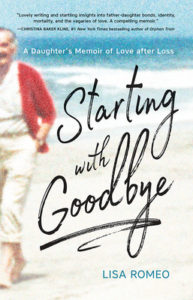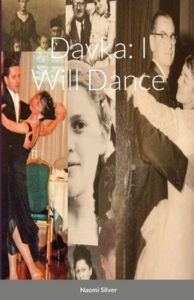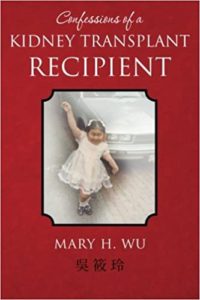
It is said that everyone has a story to tell.
In her new book, “Write for your Life,” author Anna Quindlen advocates for the value of writing, of capturing our histories through letters, journals, or memoirs ― for the power of writers to find our voices and share our stories:
“That is a kind of afterlife all our own stories, inconsequential and important as well, can assume when we record them. To write the present is to believe in the future.”
Autobiographies and memoirs are both first person writings by and about the author, but with some notable differences. The former is meant to be a chronological and factual account of the author’s life up to the time of writing. Memoir comes from the French mémoire, which means memory, and is shaped from personal memories of events and emotions. Memoirs may move back and forth over time. It’s a bit like the old saying, same church, different hymnal.
 A few years ago, I heard author Lisa Romeo speak at a library lecture. She described her own writing process and about her (then) newly published memoir, “Starting with Goodbye,” a touching story about her relationship with her late father. I appreciated the emotional ambivalence she described that often comes with complex relationships and her candor in sharing those. I related to her insights about how after a loss, we can grow not only to understand more about the person we loved, but also about ourselves.
A few years ago, I heard author Lisa Romeo speak at a library lecture. She described her own writing process and about her (then) newly published memoir, “Starting with Goodbye,” a touching story about her relationship with her late father. I appreciated the emotional ambivalence she described that often comes with complex relationships and her candor in sharing those. I related to her insights about how after a loss, we can grow not only to understand more about the person we loved, but also about ourselves.
I later spoke with Lisa, who is also a writing coach, about her work helping people find their voices and best tell their stories through memoirs. She shared, “There’s a saying that there are only five or six stories to tell about the human condition. Most memoirs are about rather common experience made interesting because of how the story is told. The goal is to engage the readers in a story and good writers know how to make it meaningful for others.”
I was introduced to Naomi Silver (a pen name) while working on a recent news story about ballroom dancing. Her memoir, “Davka: I Will Dance,” is a series of non-chronological vignettes – some poignant and others quite funny: her courage to begin ballroom dance lessons almost 20 years ago at the tender age of 68; being a child in Germany and Belgium during the Holocaust and then immigrating to the U.S.; and aspects of relationships, including family, friends, and the brave new world of dating after more than two decades of marriage. (She shared with me that as part of her 85th birthday celebration, she and her dance teacher performed four show dances for her family and friends.)
The book was born as a group exercise using 20-minute writing prompts. Naomi told me, “I wrote all these little pieces and then showed some of it to my daughter. She said, ‘You know, you have a book here.’ “
I first interviewed Mary Wu more than 10 years ago. Since then, she has accomplished some big feats, including riding on the Donate Life float in the Tournament of Roses Parade, swimming in the Transplant Games of America (3 times!), published a memoir (see below) and more recently a book of poetry.
As a two-time kidney transplant recipient, Mary is a powerful and tireless advocate for organ transplant donors and recipients, for families, and for public education. Her 2013 memoir, “Confessions of a Kidney Transplant Recipient,” is a story of resilience, gratitude, and passion.
 I asked Mary what she discovered in the process of writing her story. She said, “I learned so much about the strength and hope we have in all of us to carry on and forward. I am grateful for every day I have and to my two organ donors who have given me the greatest gift: Life.”
I asked Mary what she discovered in the process of writing her story. She said, “I learned so much about the strength and hope we have in all of us to carry on and forward. I am grateful for every day I have and to my two organ donors who have given me the greatest gift: Life.”
Anna Quindlen advises,
“If, in good times and bad times, and ordinary times, people who may not think of themselves as writers begin to set their stories down, in their own voices, in whichever way they choose it will make history, make it truer, fairer, richer.”
Please check out the many excellent memoirs on the Biography and Memoir section of the Bookshelf.